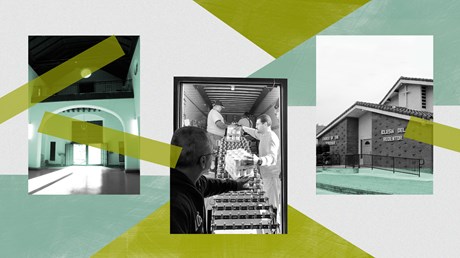Our churches are essential, but whether it is critical to gather is another question.

Categorizing the church as a non-essential institution is another blow to the Latino church. Many know firsthand what it means to be marginalized in society. Forced church closures add to this experience of rejection. It tells the Latino church that its ministry role in the neighborhood is not needed during this pandemic. The federal government does not identify churches as being so essential that their closure “would have a debilitating effect on security, economic security, public health or safety.” This categorization itself has bothered not only Latino ministers, but many other Christians, as seen by recent lawsuits in California, Virginia, Tennessee, Illinois, and Kansas, to name a few.
Like many others, Latino Pentecostal ministers in southern California are facing the challenging choice between the freedom to gather or the freedom to put others first by staying at home.
Since the First Amendment includes the freedom to worship and the ability to assemble, churches are fighting for their constitutional freedom to congregate—including some Latino pastors in California who are planning to reassert this right on Pentecost Sunday, May 31, with or without state approval. They may not have the resources to join a lawsuit, so civil disobedience is another means to voice their displeasure.
But this desire to reopen will involve more than an expression of our constitutional right to gather. It will reveal how we understand our freedoms in Christ; whether we champion the right to gather above the health and safety needs of the other. This decision is not that simple. It also intersects with ministerial, cultural, and technological challenges in being the church for the Latino community.
John Brito, the senior pastor ...
from Christianity Today Magazine https://ift.tt/2Zzy2lj
No comments:
Post a Comment